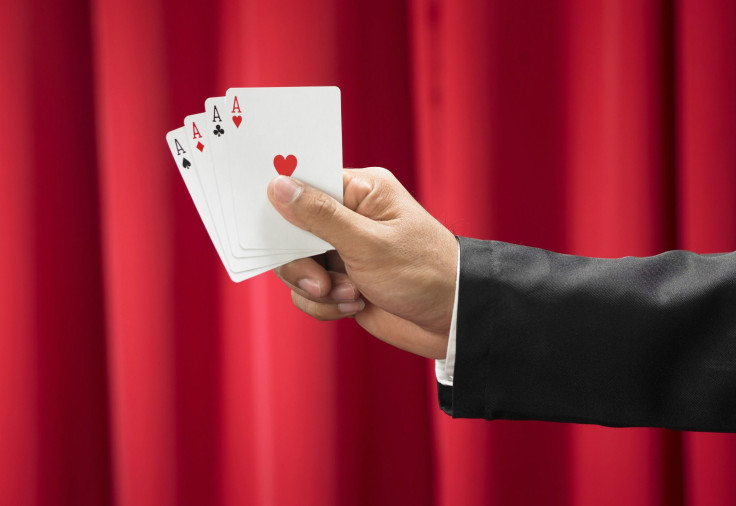Psychologists Use Magic To Understand What Factors Into Daily Decision-Making

Pick a card, any card… and reveal the psychology of decision-making? Possibly, according to recent research published in the journal Consciousness and Cognition.
"We began with a principle of magic that we didn't fully understand: how magicians influence audiences to choose a particular card without their awareness," Jay Olson, lead study author and graduate student in psychiatry in McGill University's Raz Lab, said in a press release. "We found that people tend to choose options that are more salient or attention-grabbing, but they don't know why they chose them.” Or at least they didn’t until now.
The British Psychological Society (BPS) cited when magicians rifle with a deck of cards, they’re actually using a “forcing technique,” in which the magician uses their thumb to pull up and gradually release one end of the deck in order to give their participant a quick glimpse of the cards. It seems like a casual gesture, but it’s done carefully so the one card — also known as the target card — lingers longer than the others. When Olson, who is also a professional magician, did this for 118 people he happened upon on streets and campuses, nearly 100 percent of them chose the target card.
In a laboratory setting, however, the technique was less effective. Participants did a computer version of the magic card game, silently choosing one of 26 cards and re-entering it after each trial of the trick. This time, only 30 percent of participants chose the target card — and 60 percent said they noticed one card appeared longer than others after the fact, too. This, psychologists said, is still telling of a person’s personality.
Certain personality factors were associated with picking the target card. For example, participants who feel their lives are controlled by outside factors were more likely to have picked the target card, BPS reported. And participants aware of the target card relied on visuals to explain their card choice, such as “hearts are a common symbol and the red stood out.”
What’s more is the computer version of the card trick is void of the magician’s personality, of the expectations of the overall set-up, as well as the pressure to choose a card quickly. These, Olson said, may all factor into a participant’s decisions. He added these findings have a practical significance in that they can reveal the potential for using magic to study how people’s decisions can be influenced without them knowing.
It’s an unusual lens to study this process of “higher brain functioning," Amir Raz, of the Canada Research Chair in the Cognitive Neuroscience of Attention in McGill's Faculty of Medicine, said — but it’s the latest study to explore the ties between “the magical arts” and principles of psychological and neural sciences.
Raz concluded: "Such a marriage has the potential to elucidate fundamental aspects of behavioral science as well as advance the art of conjuring."
Source: Olson J.A., et al. Influencing Choice Without Awareness. Consciousness and Cognition. 2015.



























